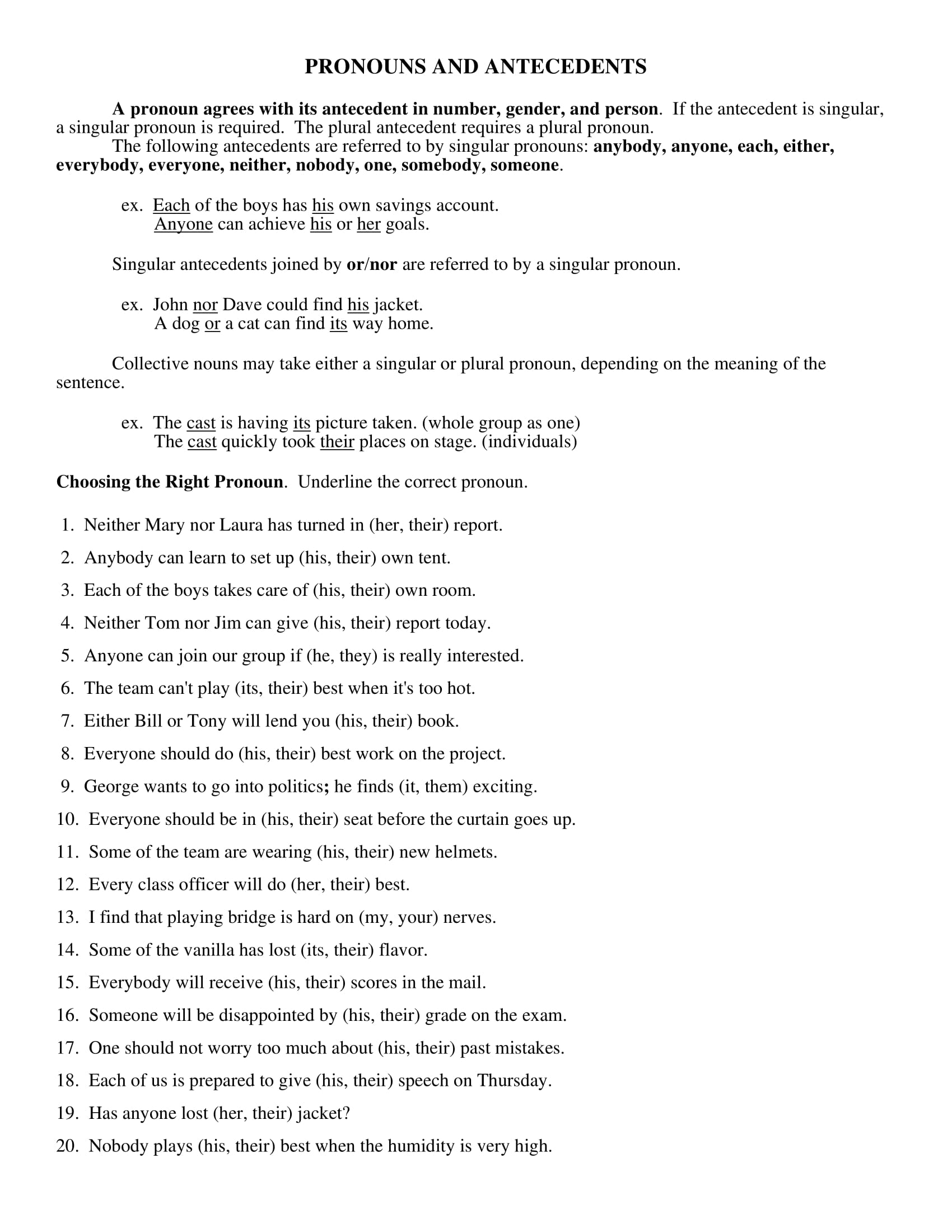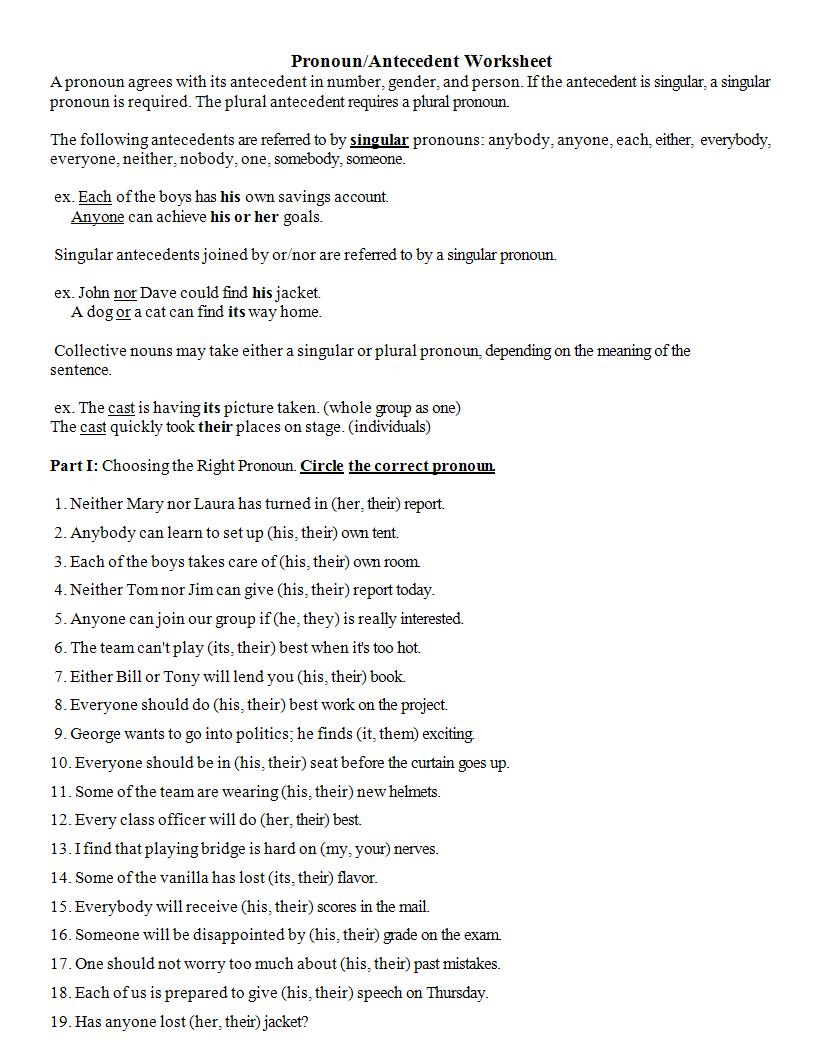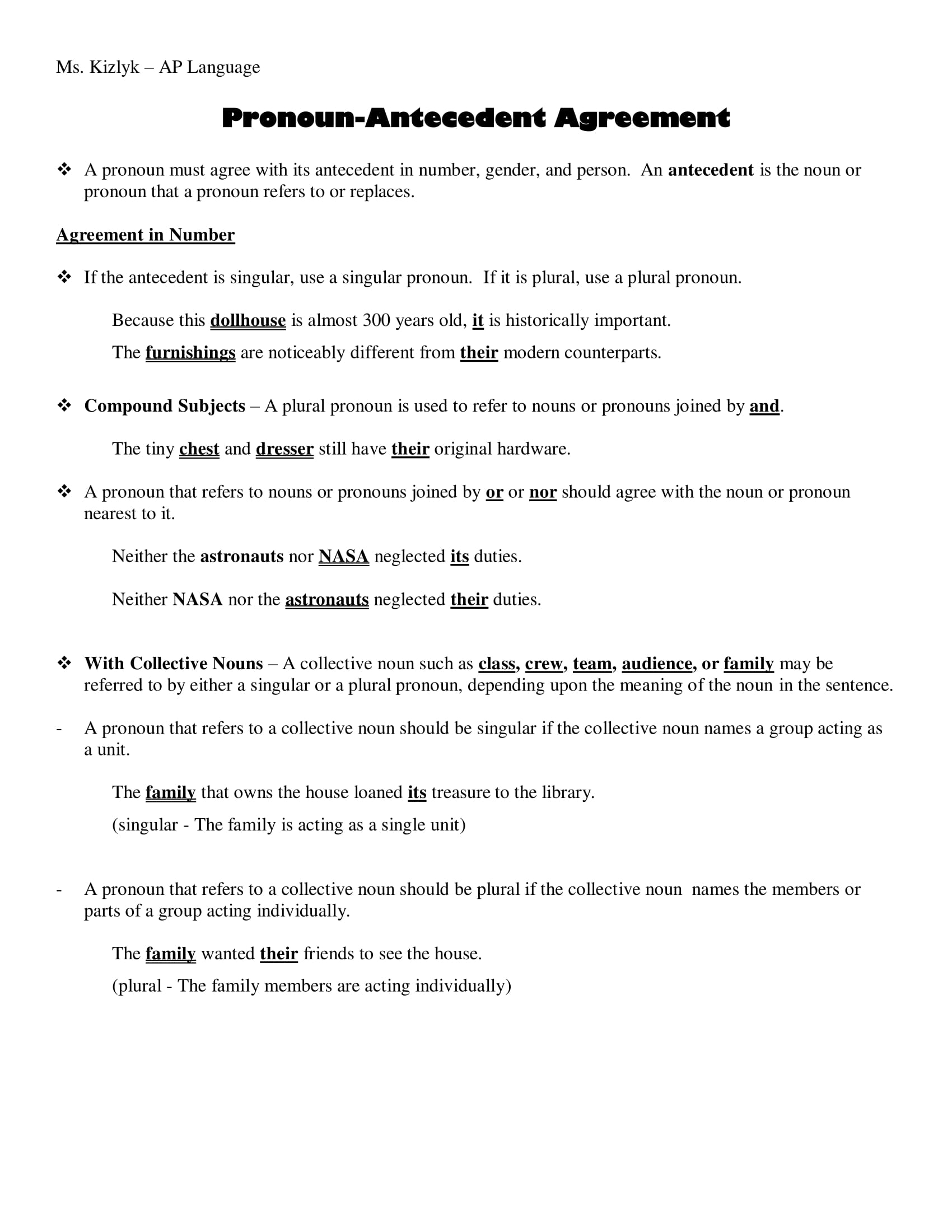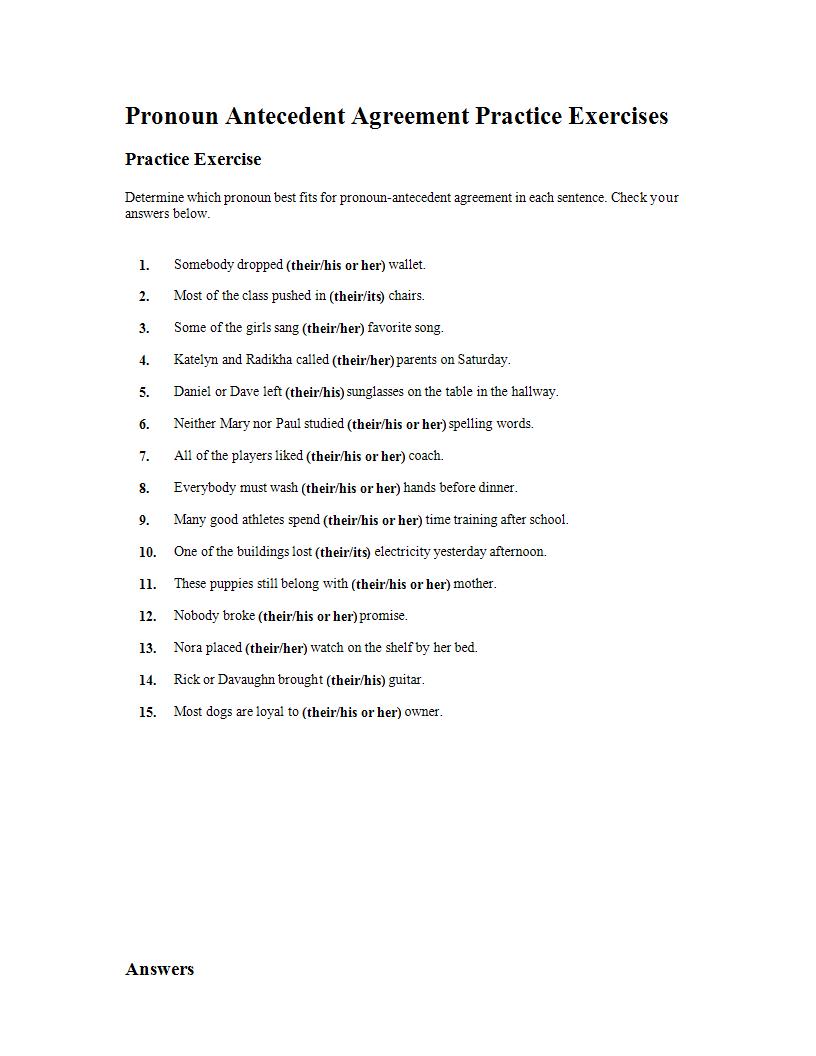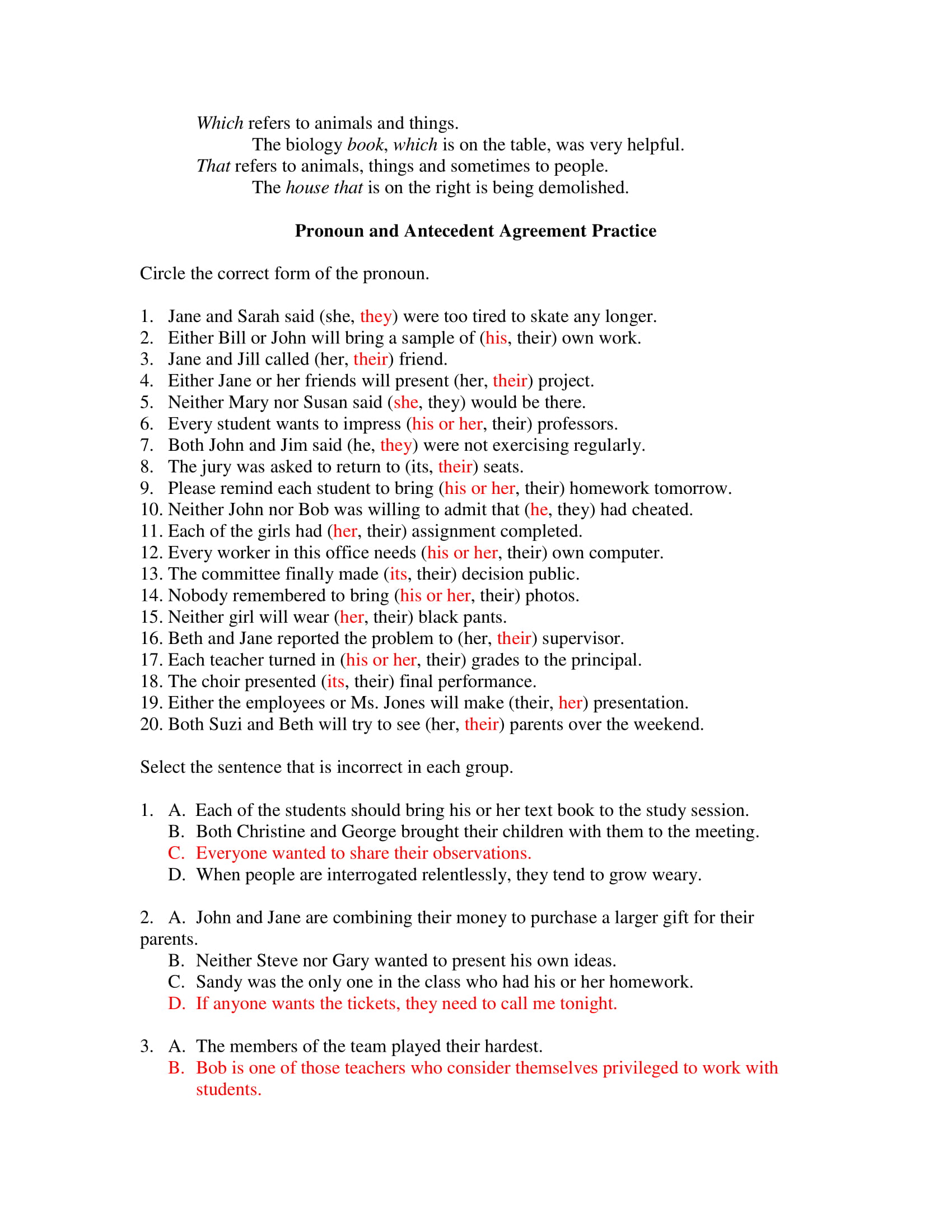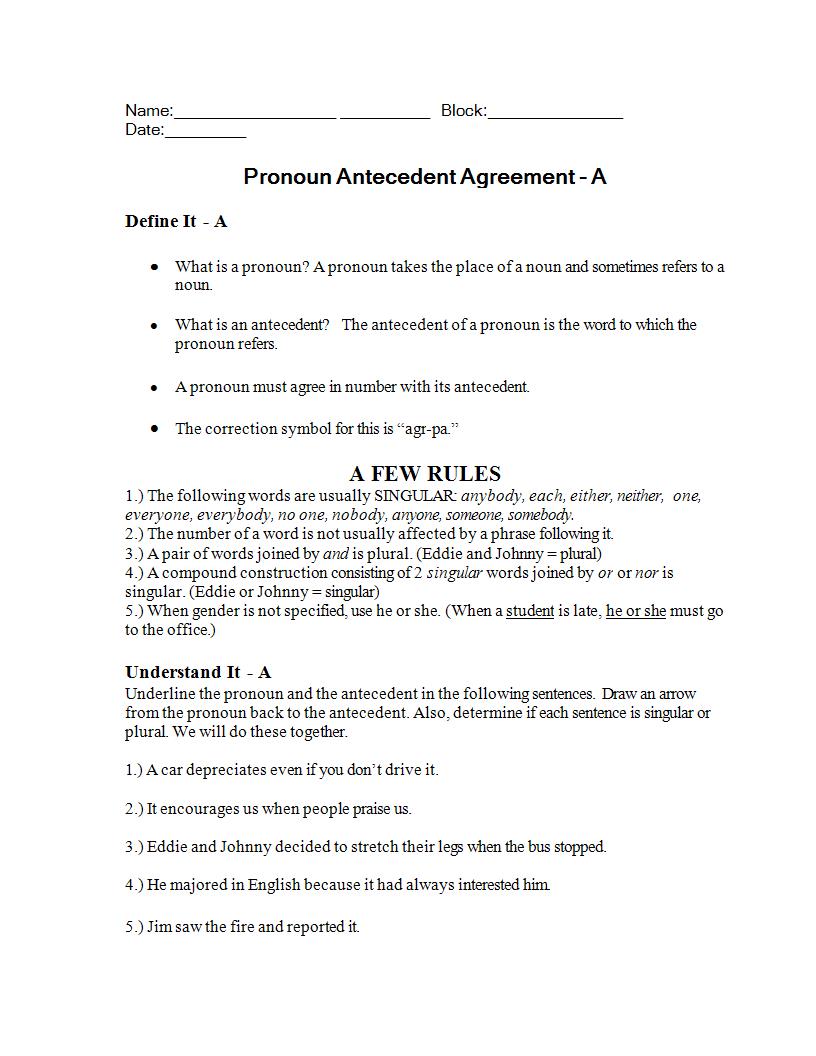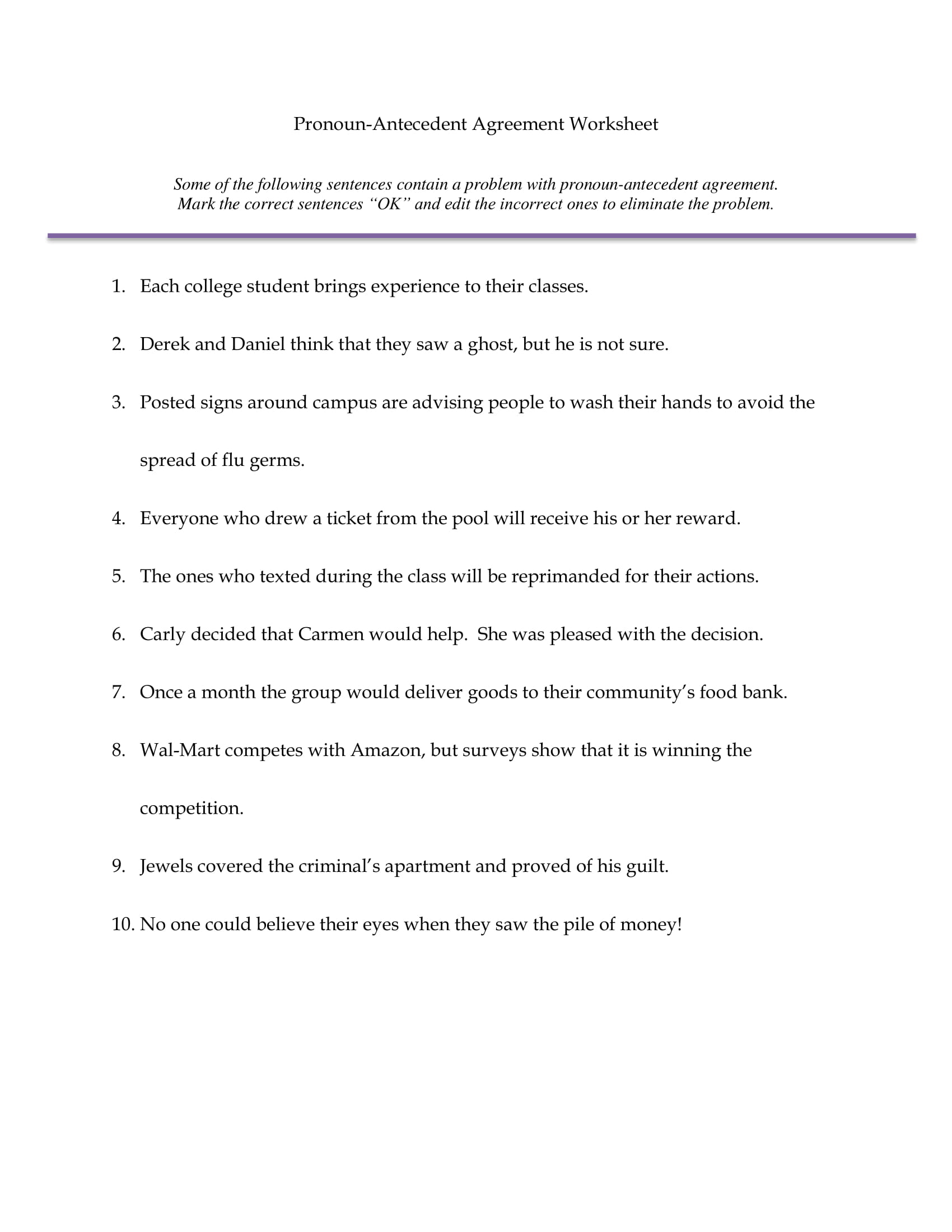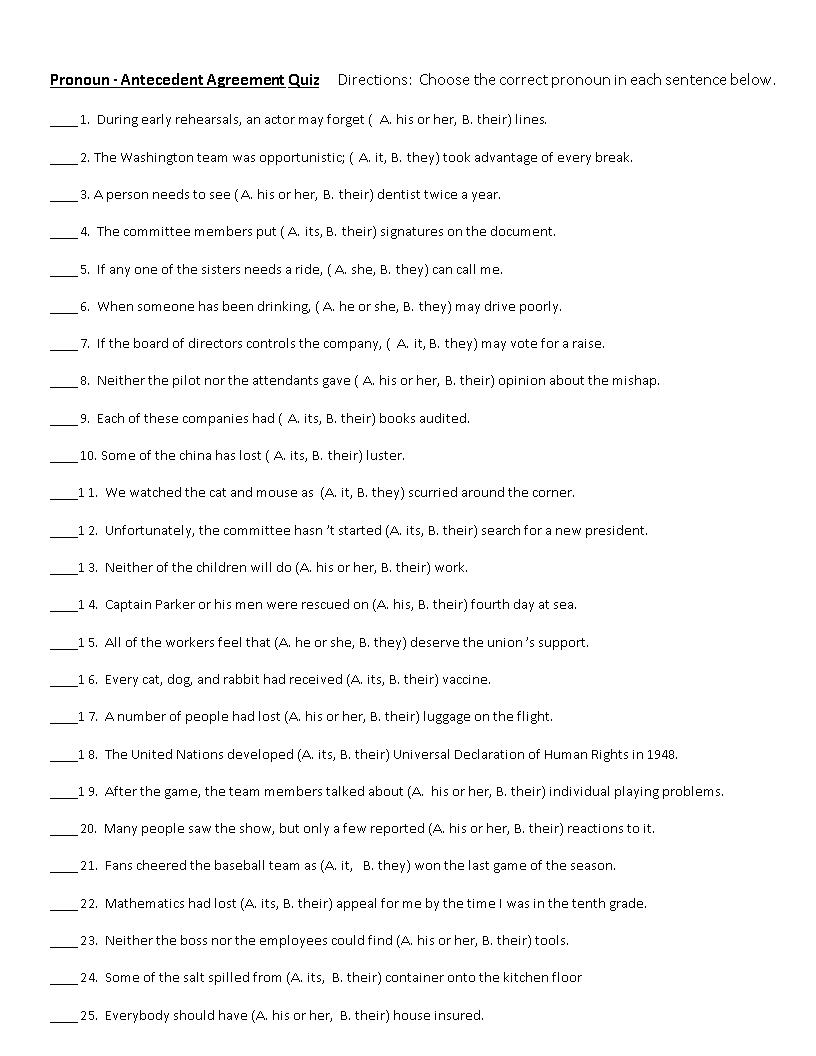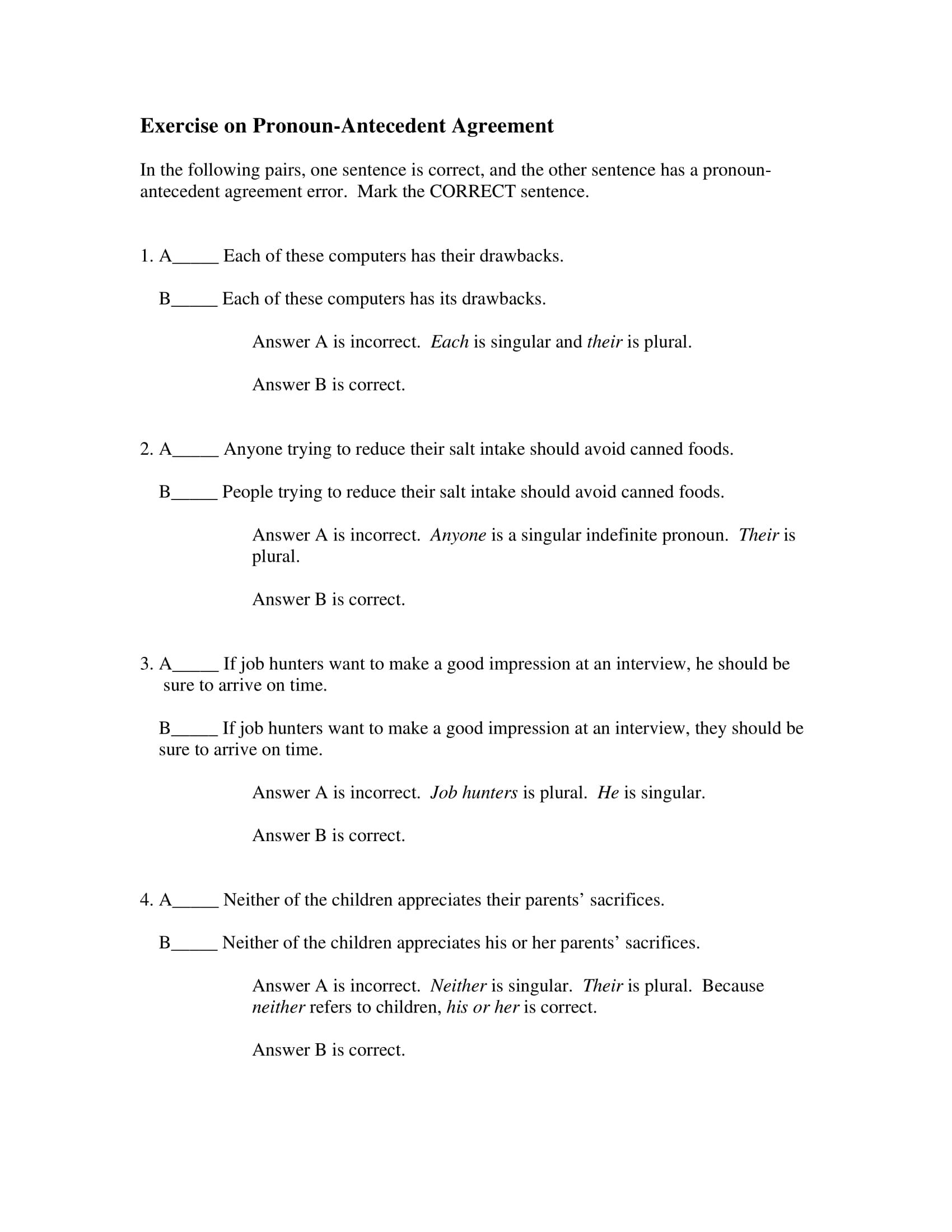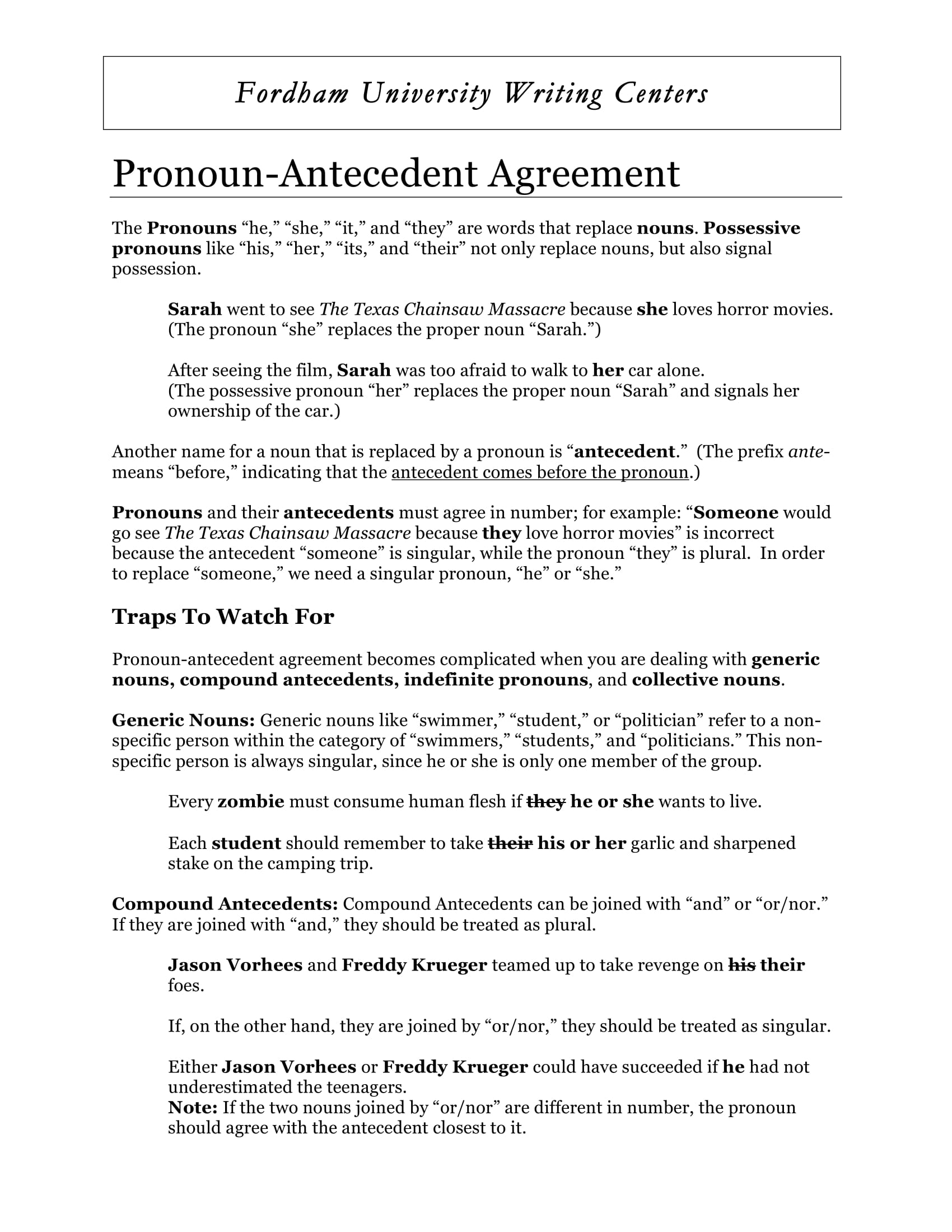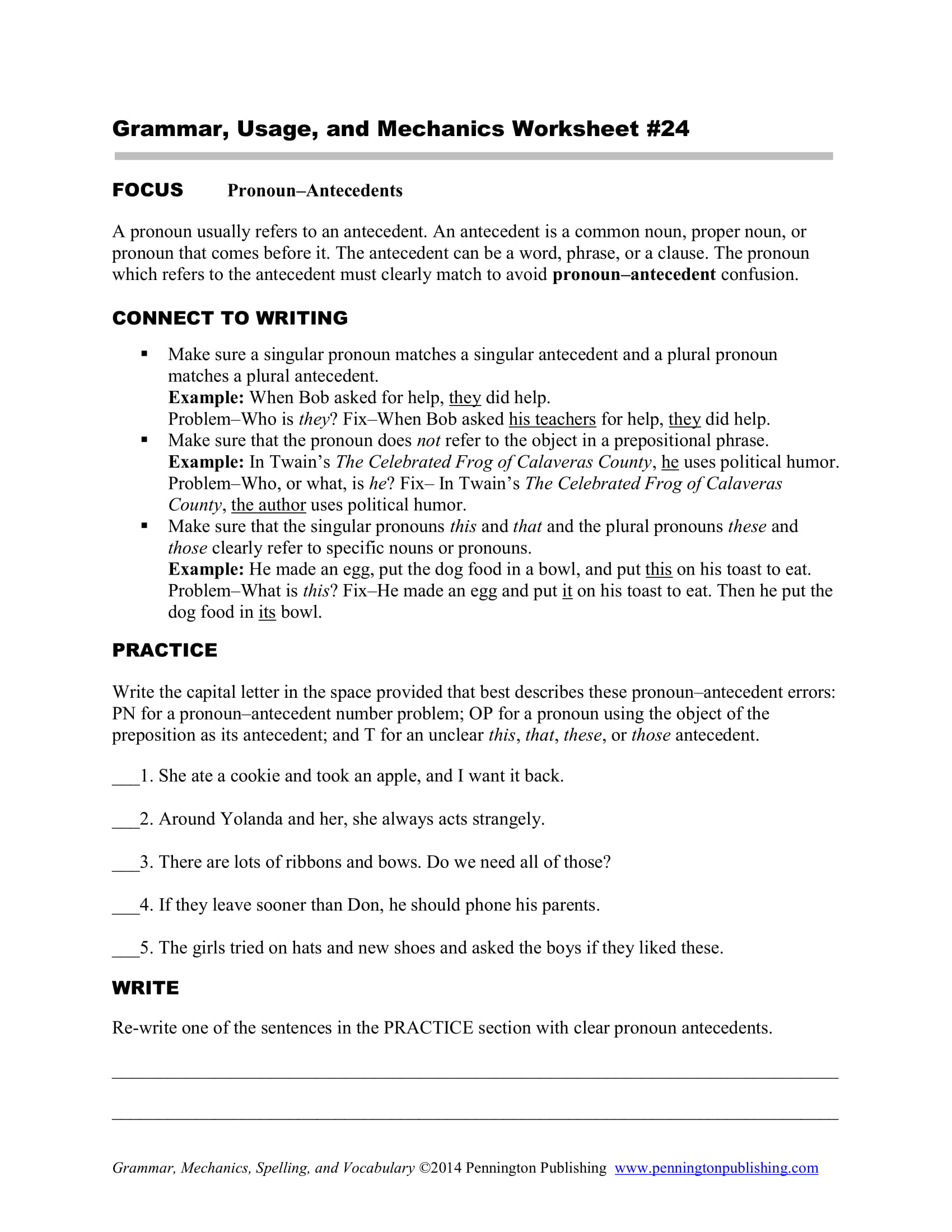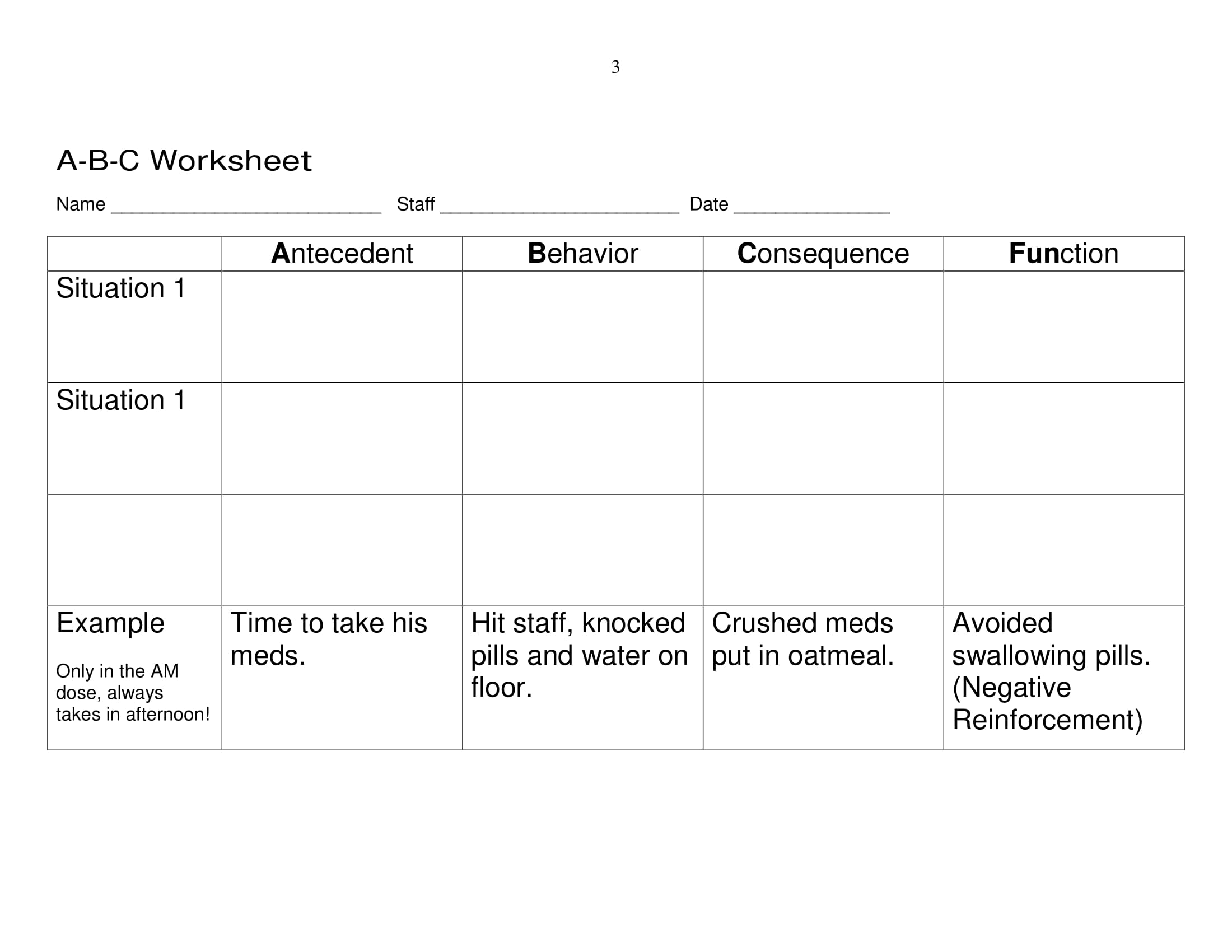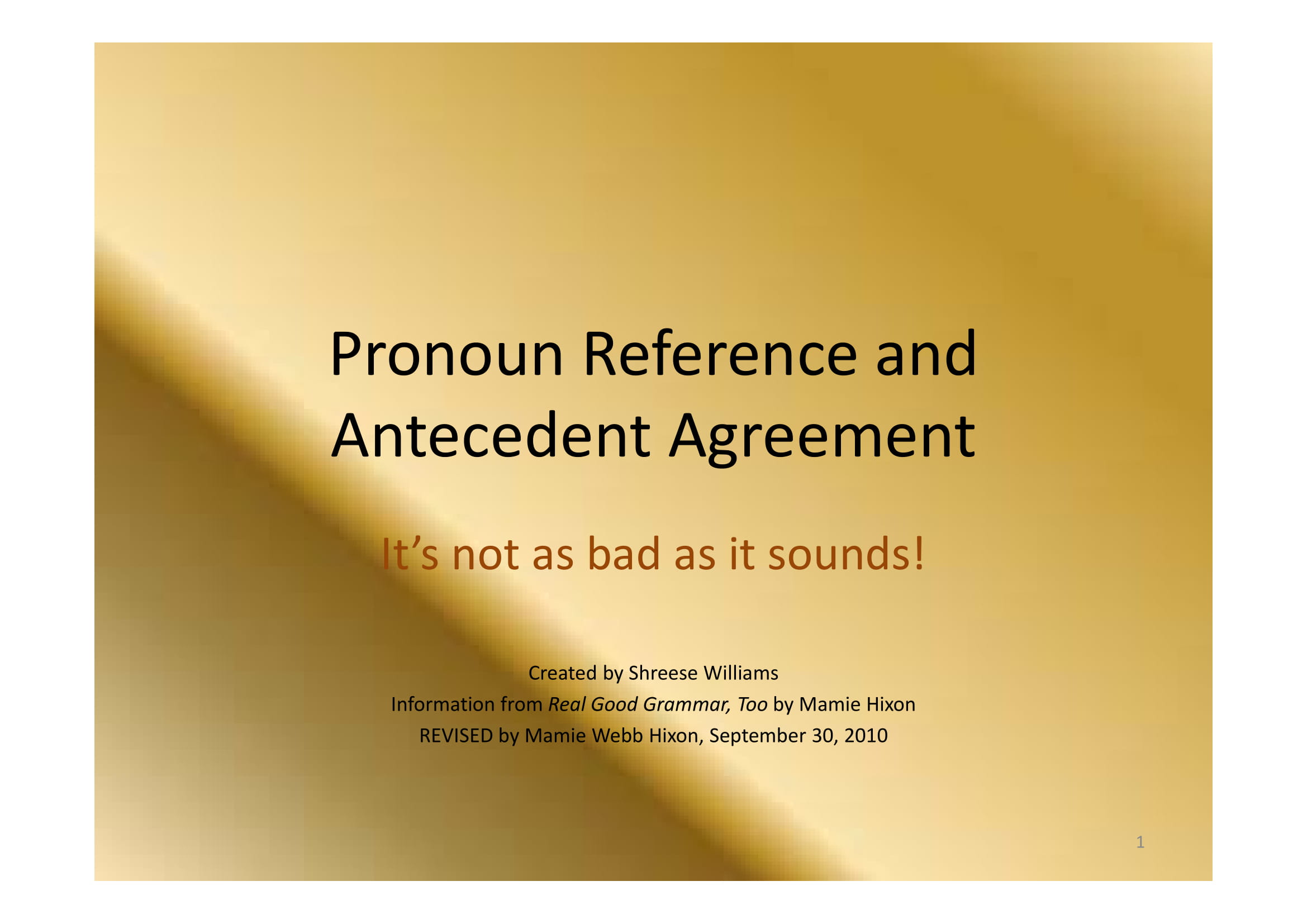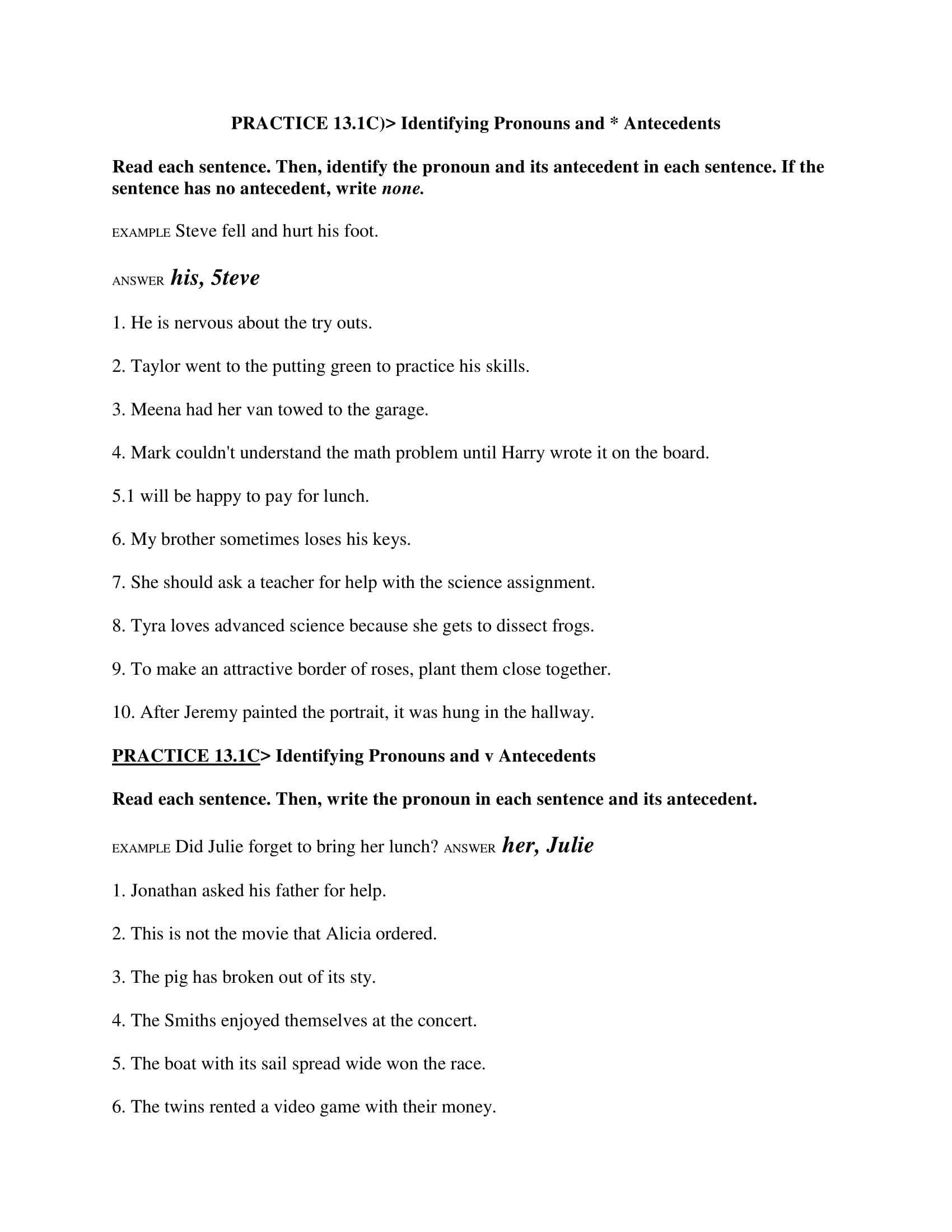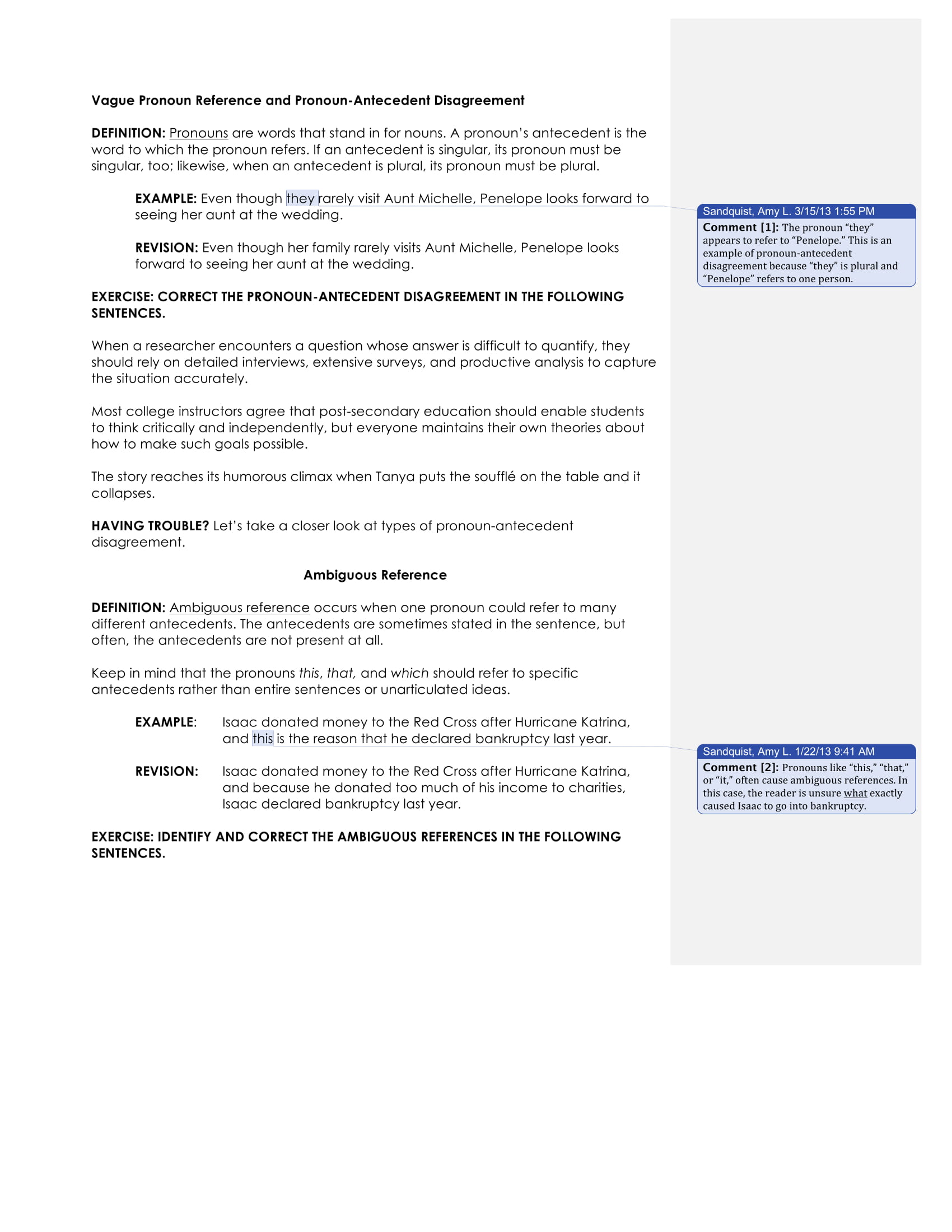15+ Antecedent Examples
Regardless of where you are in life, good communication skill is a very important asset an individual should have. You should be able to make grammatically correct sentences in order to clearly get your point across. In the academe where you have to write countless of essays, research papers, reports, and even one or two thesis papers having a good writing and good communication skill will help you ensure a good grade. The same goes when you become a working professional, your ability to write a good cover letter and resume will determine your chances of getting hired for a job, or your ability to make good plans will determine the fate of your business.
- Pronoun-Antecedent Agreement
- 30+ Free Agreement Examples – PDF
With the significance of communication in everyday life, it is important for you to know how you can clearly communicate your thoughts and ideas to the people you deal with. This will ensure that you perform your tasks with high quality and will also make it easier for you to achieve your desired result. In this case, you have to learn the basics and this includes learning about antecedents. In this article, relevant and important discussions about the topic of antecedents will be thoroughly discussed.

What is an Antecedent?
An antecedent is the word or words that a pronoun refers to. In Latin, where the word is derived from, the word antecedent means to go before. It was given its name with the idea that a pronoun refers to something previously mentioned in the sentence. For example: When you see the professor, please tell him I’ll be 10 minutes late this evening. In this example, the antecedent is the word professor and the pronoun referring to it is the word him. This proves the point that an antecedent comes before the pronoun in a grammatically correct sentence.
With that in mind, it is commonly called as a pronoun-antecedent since both words has a direct relationship with each other. Without the other a sentence will be grammatically incorrect and simply will not make any sense. The antecedent of a pronoun is typically a noun, pronoun or a noun phrase. However, although the words antecedent connotes that it should come before a pronoun, that is not always the case. There can be instances where an antecedent comes after the pronoun. For example: When you see him, please tell the professor I’ll be 10 minutes late this evening. This is the same example as before, the only difference is that the pronoun comes before the noun antecedent.
Anytime there is a pronoun there is also an antecedent that it refers to. There are also cases when the antecedent is not on the same sentence as the pronoun referring to it. This only make sense because if there weren’t no antecedents that a pronoun refers to in a sentence or paragraph, readers will be confused as to whom the pronoun is referring to. To sum it up, an antecedent is the noun or noun clause that a pronoun refers to in a sentence or paragraph.
Pronouns and Antecedents Worksheet Example
Pronoun-Antecedent Worksheet Example
Pronoun Antecedent Agreement Example
Pronoun-Antecedent Agreement Practice Exercises Example
Rules in Pronoun-Antecedent Agreement
Pronoun-antecedent agreement refers to the agreement of the antecedent and its pronoun regarding the number, gender and person used as in first, second, or third person. There should be harmony between the pronoun and antecedent in order for the sentence to make perfect sense, otherwise it would just confuse the reader what the sentence actually means. To discuss pronoun-antecedent agreement further, here are some of the rules that should be remembered:
1. It must have an agreement in number
In order to have clarity in the sentences it is always a must to have uniformity in the numbers being referred to. The pronoun must agree with the antecedent, if antecedent is singular the pronoun should also be singular; when the antecedent is plural the pronoun must also be plural. For example:
Singular: Abigail called to say she will arrive at 7 o’clock.
Plural: The girls called to say they will arrive at 7 o’clock.
Singular: The woman who lives next door lost her driving license.
Plural: Both the women who lives next door lost their driving license.
Singular: Mark lost his wallet last night.
Plural: Both men lost their wallet last night.
2. Indefinite pronouns as singular
Indefinite pronouns although having plural meaning or refers to plural subjects must always be taken as singular. Some examples of indefinite pronouns are anyone, anybody, everyone, everybody, someone, somebody, no one, and nobody. The same goes for either and neither although seem to be referring to two things. Here are some sentence examples:
Incorrect sentence: Everyone in the concert were having the best time of their lives.
Correct singular: Everyone in the concert is having the best time of his or her life.
Correct plural: All of the people in the concert were having the best time of their lives.
Incorrect sentence: Somebody has left their trash in the counter.
Correct singular: Someone has left his or her trash in the counter.
Incorrect sentence: Anyone who leaves their trash in the office are seriously reprimanded.
Correct singular: Anyone who leaves his or her trash in the office is seriously reprimanded.
3. Generic noun as singular
Despite its plural meaning, generic nouns must be treated as singular. However, there must caution in using quantifiers such as a or any, every, or each. For example:
Incorrect: Every girl in the office must at least try to clean after themselves after using the comfort room.
Correct:
- Every girl in the office must at least try to clean after herself after using the comfort room.
- The girls in the office must at least try to clean after themselves after using the comfort room.
Incorrect: Each student in the cafeteria are cleaning for themselves.
Correct:
- Each student in the cafeteria is cleaning after himself or herself.
- The students in the cafeteria are cleaning after themselves.
Incorrect: A driver should know how to fix their car.
Correct:
- A driver should know how to fix his or her car.
- Drivers should know how to fix their car.
4. Collective nouns as singular
Unless the meaning is clearly plural, collective nouns must be treated as singular. Here are some examples of collective nouns that you can use in your sentences: group, jury, crowd, team, audience, club, couple, family, troop, class, committee, etc. Here are some examples:
- The jury read its verdict.
- The jury members gave their opinions.
- The audience yelled its cheer.
- The council members disagreed among themselves.
5. Compound antecedents connected by and as plural
Any antecedent connected by and should be treated as plural in form. For example:
Incorrect: Finn and Jane went up the hill so he or she can see the sky clearly.
Correct: Finn and Jane went up the hill so they can see the sky clearly.
Incorrect: John and Sam made his or her presentation.
Correct: John and Sam made their presentation.
Incorrect: Mark and Kaycee took his or her time preparing.
Correct:Mark and Kaycee took their time preparing.
6. Compound antecedents connected by or or nor or by either or or neither nor agrees with the antecedent closer to the pronoun
When a compound antecedent is connected by or or nor or by either…or or neither…nor, it is important to pay attention to the antecedent closest to the pronoun. The pronoun used in this case should agree with the closest antecedent. Here are some examples:
- Neither the manager nor the employees did their job.
- Neither the employees nor the manager did his or her job.
- Either the mother or the son brought his car.
Pronoun and Antecedent Agreement Practice Sheet Example
Pronoun-Antecedent Agreement Exercise Sheet Example
Pronoun-Antecedent Agreement Worksheet Example
Pronoun-Antecedent Quiz Sheet Example
Common Types of Antecedent Mistakes
Just admit that making grammatically correct sentences is hard and you merely rely on “this sounds good” than actually following the rules that has been set. That is normal since the English language along with its sets of rules are complicated and can be hard to understand. With that said, it can be confusing which pronoun to use on certain antecedents. In order for your to avoid making the same mistakes over and over, here some of the most common errors when it comes to antecedent and pronoun-antecedent agreement:
1. Not agreeing in number
In order for a sentence to make sense their must be coherence in all the aspects of the sentence. This means to say there must be an agreement with the quantity of the subject and verb. In this case, a singular antecedent gets a singular pronoun and a plural antecedent gets plural pronoun. However, this is quite confusing to a lot of people and this is the commonly committed mistake. Here are some examples of this error:
Incorrect: Both did good in his or her job.
Incorrect: John and Sam made his or her presentation.
Both signifies a collective noun that literally means that is is referring to two people meaning it is plural in form. Therefore, it should also have a plural pronoun. On the other example, since the tow subjects are connected by the conjunction and it is to be taken as plural; thus a plural pronoun should also be used. Here are the correct version of the first examples:
Correct: Both did good in their job.
Correct: John and Sam made their presentation.
To make you understand this rule more, here is an example of a longer sentence:
Incorrect: Elephants are the largest land animals on Earth; these mammals live primarily on the African continent where it primarily eats grasses, bamboo, bark, and leaves for survival.
In this example you may have noticed the pronoun it in the second independent clause. The pronoun it refers back to its antecedent elephants which is plural in form because it ends in an “s”. In order to correct this sentence you have to either making the antecedent singular to match its pronoun it or change the pronoun it to the plural form their. With that the sentence will be:
Correct: An elephant are the largest land animals on Earth; these mammals live primarily on the African continent where it primarily eats grasses, bamboo, bark, and leaves for survival.
Correct: Elephants are the largest land animals on Earth; these mammals live primarily on the African continent where their primarily eats grasses, bamboo, bark, and leaves for survival.
2. Too many antecedents
When in the midst of writing, you can sometimes forget the rules of grammar, and the result for that is having a grammatically incorrect sentence as well as the absence of coherence. This is the second most common error when it comes to antecedents is having too many antecedents in one sentence. The pronoun will be confusing if it can refer to one or more antecedents in the same sentence. Here are some of this antecedent error:
Incorrect:When Mathilda lost Mary Ann’s manuscript, she was upset.
Incorrect: I was carrying the groceries in my left hand and the keys in my right hand when I tripped and dropped them.
In these examples, it is clear that the both sentences are confusing. There is no sign by which the pronoun was used for a specific antecedent. In this first example it is really confusing to tell who was upset. Was it Mathilda or was it Mary Ann? The same goes for the second sentence, what does the pronoun them referring to? In order to make things clear in this cases, you can just direct mention the name of the person or object instead of using a pronoun.
3. No antecedent
There are also cases when a pronoun is used but there is no antecedent that do not refer back to anything. Sometimes you confuse this error as a typo error, but the more you read it over the more it doesn’t make sense if one thing was altered or removed. Here is an example:
Incorrect: When Jay went in for his physical exam, they needed to take a blood sample.
Who are they? Are they the people administering the exam? It sure does not make sense if it refers back to the subject Jay. In order to avoid that you can change the sentence into this:
Correct: When Jay went in for his physical exam, the doctors needed to take a blood sample.
In that version, it has been made clear that the doctors needed to take the blood samples. In order to make things clearer, it will be easier to use the noun itself instead of replacing it with a pronoun when it does not have an antecedent to begin with.
Exercise on Pronoun-Antecedent Agreement Example
Pronouns and Antecedents Exercise Sheet Example
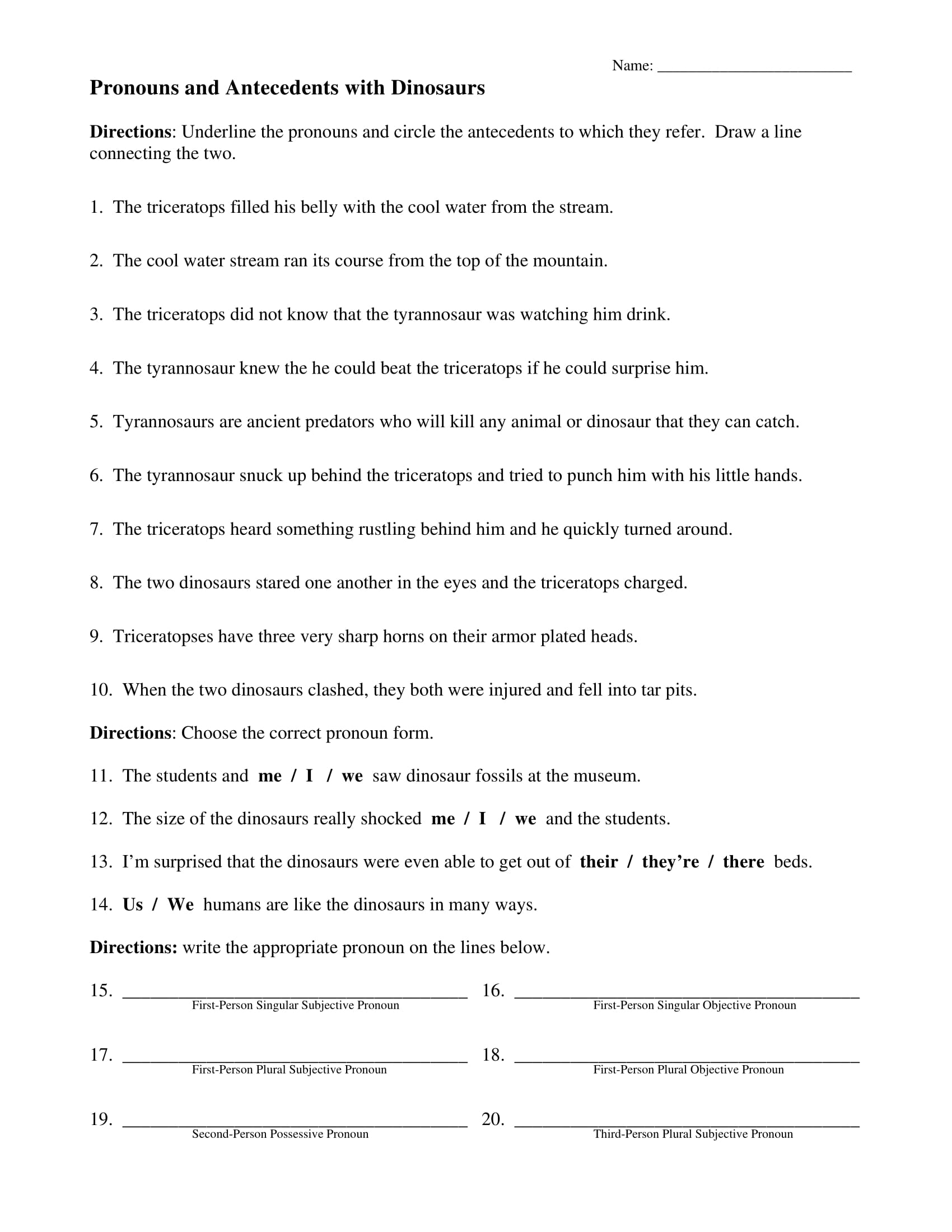 ereadingworksheets.com/
ereadingworksheets.com/Pronoun-Antecedent Agreement Guide Example
Pronoun-Antecedent Worksheet Example
Quick Pronoun Review
In order to help you make better sentences and help you choose better pronouns that suits your antecedents, you should also always remember the pronouns and how its supposed function. Remember that a pronoun is a word used as a substitute for a certain thing or person (noun) and are classified by subjective, objective, and possessive. To make a quick recap on pronouns, here is short guide:
- The subject of a sentence are called subjective personal pronouns. Here are some examples:
- I, we, you, he, she, it, and they
- The object of preposition, verb or infinitive phrase are called objective personal pronouns. These are:
- me, us, you, him, her, it, and them
- Possessive personal pronouns show ownership. Examples are as follows:
- mine, ours, yours, his, hers, its, and theirs
- Pronouns that identify and point to the noun or pronoun are demonstrative pronouns. These are as follows:
- this, that, these, and those
- Interrogative pronouns are the pronouns used to ask a question. Here are examples:
- who, whom, what, which whoever, whomever, whatever, and whichever
- The pronouns used to link clauses or phrases to the rest of the sentence are called relative pronouns. This could be:
- who, whoever, whom, whomever, that, which, and whichever
- Intensive pronouns are used to emphasize and intensify the word preceding it. They can be used similarly as reflexive pronouns since these are pronouns that refer back to the subject of a clause or sentence. These are:
- myself, yourself, himself, herself, itself, ourselves, yourselves, and themselves
- Indefinite pronouns are not specific and refer to all, some, or none. There are quite a few of these, and a few examples are:
- one, few, any, nobody, anything, and everything
Antecedent Behavior Worksheet Example
Pronoun Reference and Antecedent Agreement Guide Example
Pronoun and Antecedent Identification Worksheet Example
Pronoun-Antecedent Disagreement Guide Example
Some Examples of Antecedents with Proper Pronoun
An antecedent is basically just a word or words specifically a noun or pronoun that the pronoun refers to. A pronoun can only be used when there is an antecedent because otherwise a sentence will not make any sense. Now that you have learned about it, here are some more examples to make it even clearer for your. Remember that in these examples the antecedent is in bold letters and the pronoun referring to it in italic letters:
- Bea saw her friends’ Instagram story last night at the party.
- When you see her, tell Lana I will be waiting by the door.
- President Lincoln delivered his Gettysburg Address in 1863.
- The bride and the groom took their vow.
- Either Martha or Anna will bring her husband tomorrow.
- Neither women nor men bring their spouses tomorrow.
- The class will be held at its scheduled room today.
- The clubs are holding their meetings today.
- He saw his grade school gym teacher at work yesterday.
- After many years, I saw my ex-boyfriend last week.
- Nobody wants his or her name slandered.
- Each of the applicants was given his or her meal ticket.
- Neither of the men looked like he wanted the tequila shot.
- One of the women put her umbrella in the umbrella rack.
- The few who have submitted their papers may already leave.
- The police officer questioned both of the witnesses if they had seen the abductor’s face.
- The can of lima beans sits its shelf.
- Some of the rice fell out of its bag.
- The United States cherishes its democracy.
- The news lost much of its impact after a week.
- The number of students present increases its daily.
- A number of students have submitted their projects.
- Neither the director not the actors got their expected compensation.
- All of the jewelry have lost their glow.
- The class must submit their assignments on Monday.
Takeaways…
In order to make sense when you are writing or speaking you need to make sure your sentences are grammatically correct and there are no syntax errors present. Although it can be quite confusing it is always important to remember the rules set forth when using the English language. One of the rules you may have basic knowledge now are antecedents and their direct relationship with pronouns.
You have to always remember that antecedents are the words or group of words, noun or pronoun, that a pronoun refers to. Although it is ideal to have an antecedent before a pronoun, there can be instances when the pronoun comes first instead of the antecedent. Thus, it is very important to give yourself time to think and ponder thoroughly when reading or writing these kinds of sentences.



